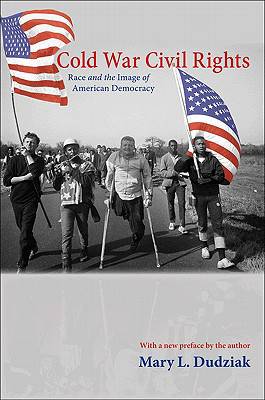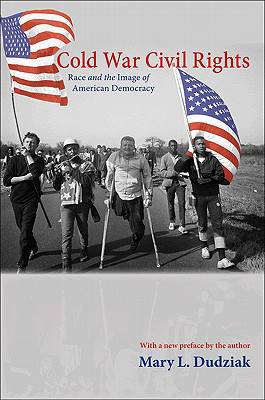
- Retrait gratuit dans votre magasin Club
- 7.000.000 titres dans notre catalogue
- Payer en toute sécurité
- Toujours un magasin près de chez vous
- Retrait gratuit dans votre magasin Club
- 7.000.000 titres dans notre catalogue
- Payer en toute sécurité
- Toujours un magasin près de chez vous
Description
In 1958, an African-American handyman named Jimmy Wilson was sentenced to die in Alabama for stealing two dollars. Shocking as this sentence was, it was overturned only after intense international attention and the interference of an embarrassed John Foster Dulles. Soon after the United States' segregated military defeated a racist regime in World War II, American racism was a major concern of U.S. allies, a chief Soviet propaganda theme, and an obstacle to American Cold War goals throughout Africa, Asia, and Latin America. Each lynching harmed foreign relations, and "the Negro problem" became a central issue in every administration from Truman to Johnson.
In what may be the best analysis of how international relations affected any domestic issue, Mary Dudziak interprets postwar civil rights as a Cold War feature. She argues that the Cold War helped facilitate key social reforms, including desegregation. Civil rights activists gained tremendous advantage as the government sought to polish its international image. But improving the nation's reputation did not always require real change. This focus on image rather than substance--combined with constraints on McCarthy-era political activism and the triumph of law-and-order rhetoric--limited the nature and extent of progress. Archival information, much of it newly available, supports Dudziak's argument that civil rights was Cold War policy. But the story is also one of people: an African-American veteran of World War II lynched in Georgia; an attorney general flooded by civil rights petitions from abroad; the teenagers who desegregated Little Rock's Central High; African diplomats denied restaurant service; black artists living in Europe and supporting the civil rights movement from overseas; conservative politicians viewing desegregation as a communist plot; and civil rights leaders who saw their struggle eclipsed by Vietnam. Never before has any scholar so directly connected civil rights and the Cold War. Contributing mightily to our understanding of both, Dudziak advances--in clear and lively prose--a new wave of scholarship that corrects isolationist tendencies in American history by applying an international perspective to domestic affairs. In her new preface, Dudziak discusses the way the Cold War figures into civil rights history, and details this book's origins, as one question about civil rights could not be answered without broadening her research from domestic to international influences on American history.Spécifications
Parties prenantes
- Auteur(s) :
- Editeur:
Contenu
- Nombre de pages :
- 360
- Langue:
- Anglais
- Collection :
- Tome:
- n° 75
Caractéristiques
- EAN:
- 9780691152431
- Date de parution :
- 31-07-11
- Format:
- Livre broché
- Format numérique:
- Trade paperback (VS)
- Dimensions :
- 152 mm x 231 mm
- Poids :
- 521 g







